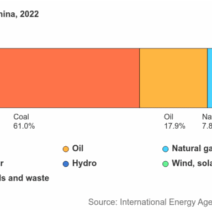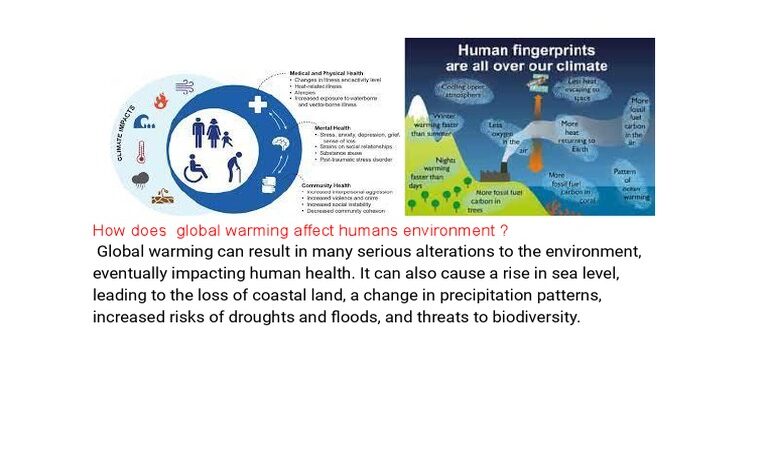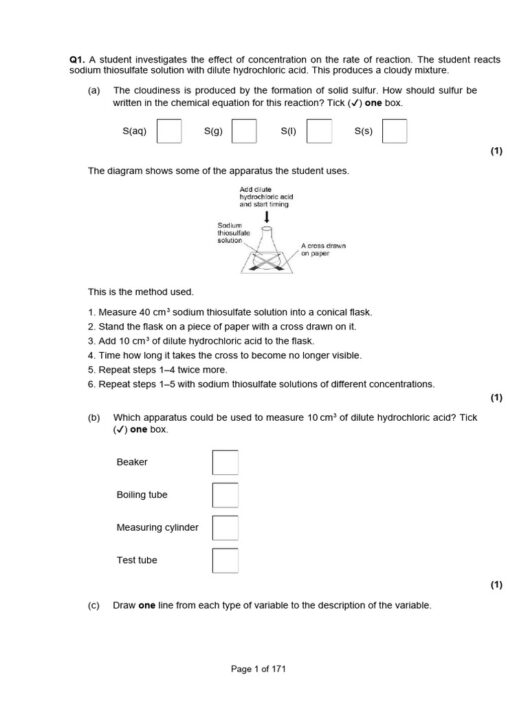Global warming, an overarching phenomenon primarily driven by human activities, poses substantial threats to our planet and, most crucially, to humanity itself. As temperatures rise due to increased greenhouse gas emissions, various facets of our lives and ecosystems confront dire consequences. This article delves into the human costs associated with climate change, citing the multifarious ways in which global warming affects individuals, communities, and societies worldwide.
The most immediate impact of global warming manifests through extreme weather events. Droughts, hurricanes, floods, and heatwaves are becoming more frequent and severe due to the climatic alterations; these irregular phenomena lead to abrupt disruptions in daily life. For instance, during a heatwave, vulnerable populations—such as the elderly, children, and individuals with existing health conditions—face heightened risks of heat-related illnesses, such as heat exhaustion and heatstroke. Moreover, the increased intensity of hurricanes and flooding can devastate infrastructure, uproot communities, and lead to loss of life. As witnessed in recent years, natural disasters have escalated in both frequency and ferocity, inexorably linking them to the climate crisis.
Another critical aspect of how global warming affects humans is its impact on food security. Agriculture is inherently sensitive to changes in climate; variations in temperature and precipitation patterns can diminish crop yields, engendering food shortages and escalating prices. Countries reliant on staple crops like wheat and rice may experience dire shortages if rising temperatures exceed tolerance thresholds for these plants. This is further exacerbated by shifts in agricultural zones. Regions that once yielded robust harvests may become inhospitable, leading to the displacement of farming communities and exacerbating poverty. Consequently, the interconnected nature of agricultural supply chains means that food scarcity in one region can have rippling effects globally, inducing hunger and social unrest.
Public health is another critical arena where the ramifications of global warming are profoundly significant. As temperatures rise, the prevalence of heat-related ailments increases, highlighting a direct correlation between climate and human health. Additionally, the changing climate fosters the proliferation of vector-borne diseases, including malaria and dengue fever. Warmer temperatures can expand the habitats suitable for mosquitoes, elevating the risk of disease transmission. Contaminated water supplies from flooding can also lead to outbreaks of waterborne diseases such as cholera. Therefore, the health systems in many regions may become overwhelmed, further exacerbated by limited resources and an increasing population burden.
The socio-economic implications of global warming cannot be understated. Economic disparity often determines an individual’s ability to adapt to or recover from climate-related impacts. Low-income communities face heightened vulnerability because they frequently reside in areas more susceptible to climate threats and lack adequate resources to mitigate these risks. For example, during natural disasters, wealthier individuals might evacuate to safer regions, while economically disadvantaged persons may be forced to remain in hazardous conditions. This discrepancy not only perpetuates a cycle of poverty but can also culminate in social inequality and dislocation.
Displacement is another pressing issue tied to global warming. Coastal communities are increasingly threatened by rising sea levels, which can render entire populations homeless. The plight of climate refugees—individuals who are forced to abandon their homes due to climatic factors—has become an urgent humanitarian concern. Countries with fewer resources struggle to manage the influx, often leading to conflicts over dwindling resources. As entire communities are uprooted, the emotional and psychological toll on individuals cannot be disregarded; loss of home, livelihood, and cultural identity significantly impacts mental health, contributing to issues such as anxiety and depression.
Cultural heritage is subtly but significantly affected by climate change. Many communities have lifestyles and practices intimately tied to their local environments. Shifting climates can endanger traditional ways of life, leading to the erosion of cultural identities. Indigenous populations, in particular, face threats as their ancestral lands experience climate shifts that disrupt long-standing relationships to land and livelihood. Maintaining their cultural heritage can become increasingly challenging as traditional practices face obsolescence in the face of changing environmental conditions.
In light of all these impacts, the necessity of robust and equitable climate action is more significant than ever. Awareness is the first step. Individuals, communities, and governments must comprehend the extensive implications of global warming on human life. Adaptive strategies, including sustainable agricultural practices, resilient construction to mitigate flooding risks, and public health initiatives focusing on climate-related diseases, can serve as buffers against these vulnerabilities. Moreover, global cooperation is essential: climate change transcends borders, and collective action is vital to implement effective solutions.
In conclusion, the multifaceted human costs of climate change highlight the urgent need for a concerted response. From extreme weather events and food insecurity to health crises and displacement, global warming indiscriminately affects lives—often those who are already at a disadvantage. As awareness builds around these issues, it becomes incumbent upon all sectors of society—governments, businesses, and individuals alike—to marsh their resources and act decisively, crafting a sustainable and equitable future in the face of this existential threat.








